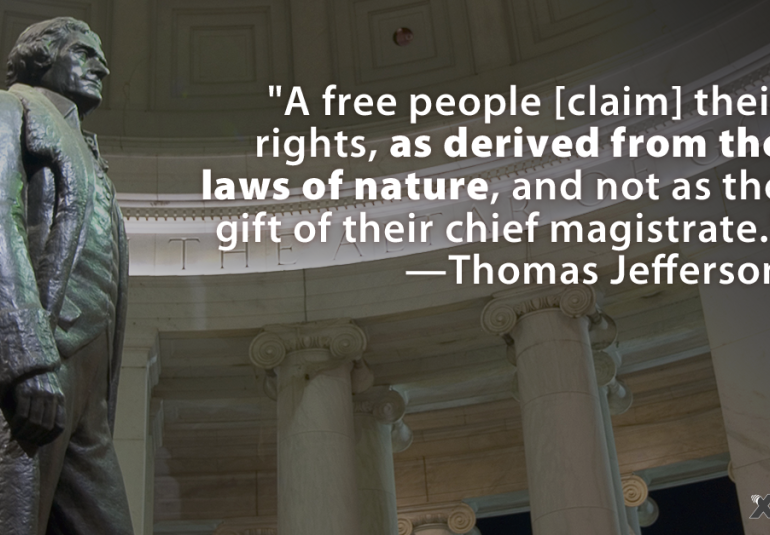
Whose Job is it to Keep the Feds in Line?
By: Michael Boldin
For the federal government to take even a “single step” beyond the limits of the Constitution, Thomas Jefferson wrote, “is to take possession of a boundless field of power, no longer susceptible of any definition.”
The “detestable precedent” is how John Dickinson described it in response to the Stamp Act of 1765. Each step – no matter how small – leads to another, and another, and another.
As John Adams put it, “The nature of the encroachment upon the American constitution is such, as to grow every day more and more encroaching. Like a cancer, it eats faster and faster every hour.”
A single step – like a deadly disease – is a step too far.
The essential question, however, is who is actually supposed to keep the feds in check?
Almost everyone today takes an approach that – in the end – is asking, demanding – or outright begging – the federal government to limit its own powers.
That’s the kind of system that the founders and old revolutionaries fought a long, bloody war to free themselves from – where sovereignty, or final authority – was in the hands of government.
In the American system, however, that final authority is in the hands of the people, since, as all the founders told us repeatedly, “all power is derived from the people.”
John Dickinson, who we could probably call the “Father of the Articles of Confederation,” asked that essential question in Fabius No. IV – when government goes beyond its limits, “what is then to be done?”
The answer, he wrote, “is to be instantly found… before the supreme sovereignty of the people.” [emphasis in original]
It is the DUTY of the people “TO WATCH, AND THEIR RIGHT TO TAKE CARE, THAT THE CONSTITUTION BE PRESERVED; Or in the Roman phrase on perilous occasions – TO PROVIDE, THAT THE REPUBLIC RECEIVE NO DAMAGE.”
Yes, Dickinson did use all caps there too.
James Madison said the same in Federalist No. 49, citing Jefferson:
”As the people are the only legitimate fountain of power, and it is from them that the constitutional charter, under which the several branches of government hold their power, is derived, it seems strictly consonant to the republican theory, to recur to the same original authority, not only whenever it may be necessary to enlarge, diminish, or new-model the powers of the government, but also whenever any one of the departments may commit encroachments on the chartered authorities of the others.” [emphasis added]
And Mercy Otis Warren agreed, “The origin of all power is in the people, and they have an incontestible right to check the creatures of their own creation.”
That’s why she told us to “resist the first approaches of tyranny,” and James Otis Jr. warned that “if we do not resist at the first attack, it may soon be too late.”
Additionally, Otis warned, “So long as people will submit to arbitrary measures, so long will they find masters.”
Even one of the first Supreme Court justices, James Iredell, told us that the people should “resist if the government usurp powers not delegated to it.”
Years later, Lysander Spooner noted that “the exercise of this right is neither rebellion against the constitution, nor revolution – it is a maintenance of the constitution itself, by keeping the government within the constitution.”
It’s up to us to keep the government in check, because, as Patrick Henry warned, trusting the fate of our liberty in the hopes that politicians will do the right thing only guarantees that liberty will be lost:
Show me that age and country where the rights and liberties of the people were placed on the sole chance of their rulers being good men, without a consequent loss of liberty! I say that the loss of that dearest privilege has ever followed, with absolute certainty, every such mad attempt.
At the end of the day – Jefferson may have summed it up best:
“A free people claim their rights, as derived from the laws of nature, and not as a gift of their chief magistrate.”